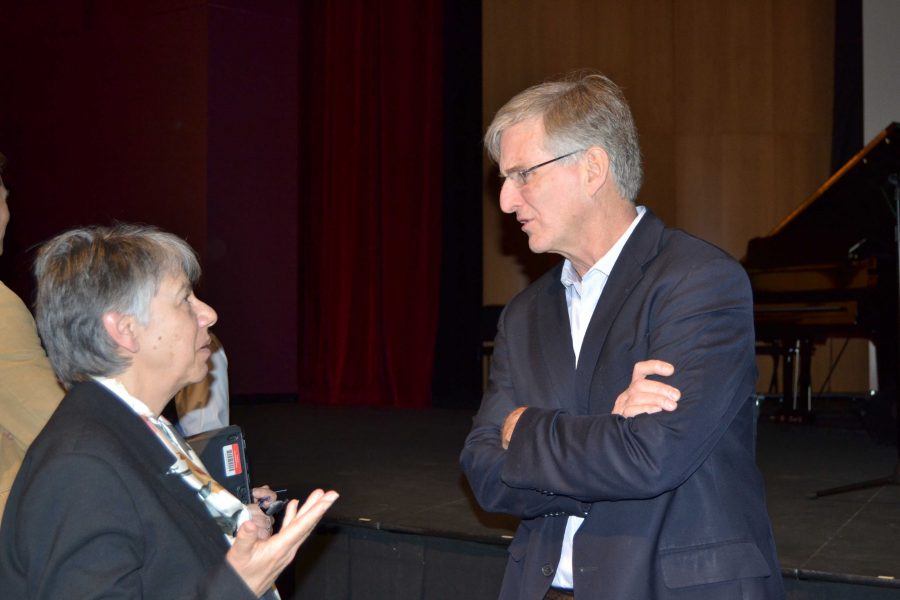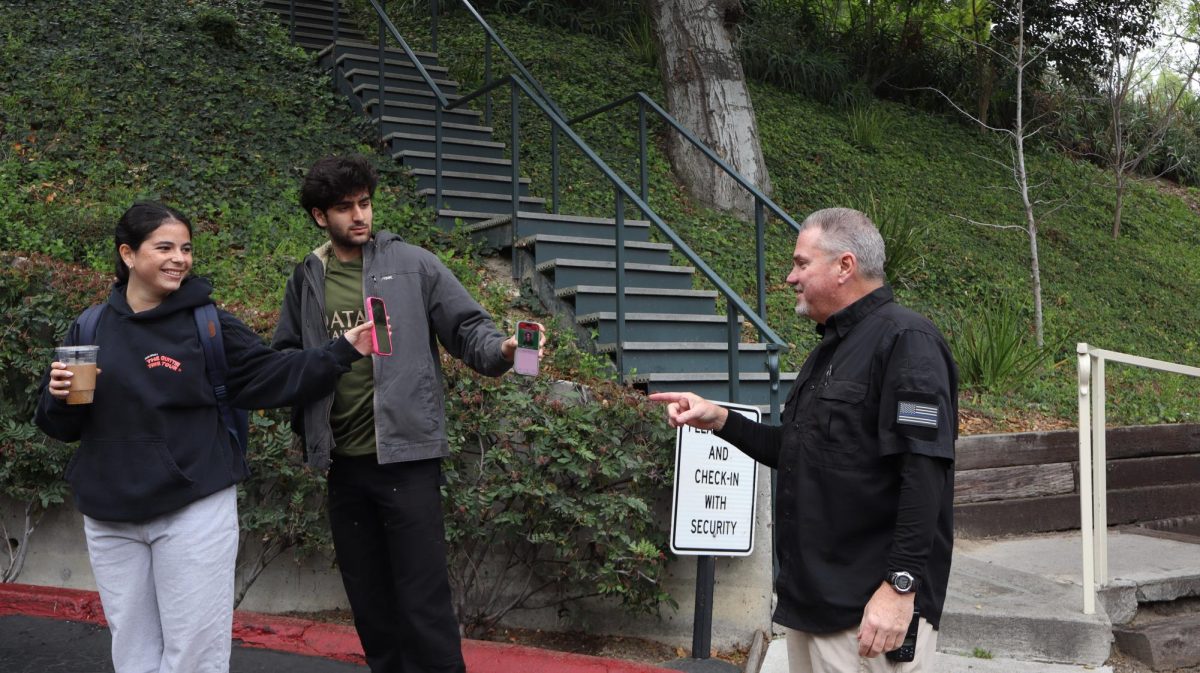Family psychologist Richard Weissbourd, a lecturer at the Harvard Graduate School of Education and the lead author of a new report calling for less competition and pressure surrounding college admissions, visited the school Feb. 3 to discuss the moral development of teenagers.
He urged faculty and parents to foster an ethics-centric student body, but was met with skepticism from faculty members towards the end of the presentation, when he contended that a student’s moral character could become a defining factor of his or her admission into a university.
“When you think about it, when kids do something wrong or when you do something wrong, when you violate a principle, it’s almost always not because you didn’t know the value of the principle, but it’s because you were probably overcome with some feeling that you couldn’t manage. Envy. Greed. Lust. Pride,” Weissbourd said in an afternoon presentation to faculty at Saperstein Theatre. “These are the emotions that are the engines of our moral life and the emotions that can cause us to transgress. So a big part of moral development is helping kids manage these feelings.”
Weissbourd directs the Making Caring Common Project, a national effort to help schools and parents raise more caring, responsible children who are committed to social justice.
He said schools should widen their notions of achievement to include ethics, not just academics and athletics.
“One thing I worry about in schools and in homes is the standard of metrics of success in childhood — that the metrics of success are you either do well academically or you do well athletically,” Weissbourd said. “And if you don’t do well academically you feel shame. And if you don’t do well athletically you can feel shame. There are so many kids who are not going to be stars academically or stars athletically or very popular, and they’re wonderful kids. Right? They’re feisty and funny and sociable and kind.”
He encouraged the faculty to help students develop their help students develop their morality, not only by focusing more on community service, but also by everyday actions such as picking up trash in the hallways and cafeteria. He called on administrators and teachers to create a process to map which students they have a strong relationship with and create new ones with those who are not well connected.
Many faculty members agreed that the school could create more of a moral community.
“The biggest thing that I took away from it was obviously a focus on character education,” upper school dean Sharon Cuseo said. “Looking at our community, he gave us some tools to look at the experiences of our students that could be very helpful. I would especially like to see us carry out his relationship mapping activity.”
Weissbourd described a survey he conducted that asked students, parents and teachers whether they most value achievement, happiness or character. Of 10,000 students from 33 different schools, most prioritize achievement and happiness above caring and also think their parents and teachers value student achievement the most.
In a Chronicle survey of 428 students, a plurality of 40 percent said they value their character over happiness and achievement, but also believe their teachers prioritize students’ academic or athletic achievement before both happiness and character.
The MCC’s “Turning the Tide” report outlines how the competitive nature of the college process induces stress and lends advantages to more privileged students.
Weissbourd told faculty members that students should focus more on community service, and schools should put less emphasis on Advanced Placement courses and standardized testing, which tend to give an edge to more privileged students, who have more options to take AP classes and can afford tutors for the SAT and ACT.
Released in January, the report has garnered praise and criticism, Weissbourd said. A recent New York Times opinion piece entitled “Rethinking College Admissions,” for example, stated the report could have a tangible impact on making college admissions more equal in terms of socio-economic status.
The deans expressed doubt that college admissions officers will follow through. Recent Harvard-Westlake college admissions data shows colleges denied early acceptance to those who did not hit a certain testing or grade point average threshold.
“There is an idealistic nature to what he’s saying, which is that the way to change culture and increase caring is for college admissions offices to place greater value on these things,” Cuseo said. “That all sounds great, except that there is a harsh reality to what the admissions officers are up against.”
Cuseo was included in the 2003 college admissions book “The Gatekeepers: Inside the Admissions Process of a Premier College.”
“In reality, colleges still have to care about their selectivity, their average SAT scores, their yields and their US News and World Report ranking,” Cuseo said. “Until those things start to reflect the characteristics he is talking about, it is unlikely that any substantive changes will be made.”
In response to data that suggests certain colleges require students to meet specific testing and GPA criteria, Weissbourd said that it is a “real problem” of the admissions process.
“One issue with schools that are just making judgements about students based on numbers of AP’s or GPA is often they don’t have enough capacity to assess students individually, and that means we have to figure out an application process that is easier to assess students multi-dimensionally, so they don’t have to look so much at things like GPA,” Weissbourd said.
Upper school dean Kyle Graham said that while colleges might say they support this change, he doubts they will implement the changes to the extent called for. He said that in one aspect of the college admissions game, elite colleges might try to increase the number of applicants through the promotion of character rather than test scores, giving them more unqualified applicants and thus decreasing their acceptance rates. A smaller acceptance rate makes universities appear even more elite.
“I think that people sometimes misunderstand how the college admissions process works, not how they have been told it works,” Graham said. “If you look at the data, Harvard has no outliers. There are never kids who just happen to get into Harvard because they are a good kid. That’s not how it works.”
Other faculty said that even if it may not be possible for colleges to make this change, it would help the quality of the institutions if they did.
“I don’t know how realistic it is, but I feel like anytime someone starts working towards [character being a factor in college admissions], it is a step in the right direction,” faculty head of the Character and Community Committee Darlene Bible said. “Colleges need people who are caring and thoughtful on their campuses, and maybe less of the terrible things we hear about happening at college [like sexual harassment] will happen.”
While Weissbourd said he thinks moral growth should be prioritized in high school, he recognized that academic rigor and character improvement are not necessarily mutually exclusive.
“I just think you can have a very rigorous, demanding, meaningful education and be very ethical, and you can cultivate both those things,” Weissbourd said. “They’re not incompatible. They’re not inconsistent at all.”































